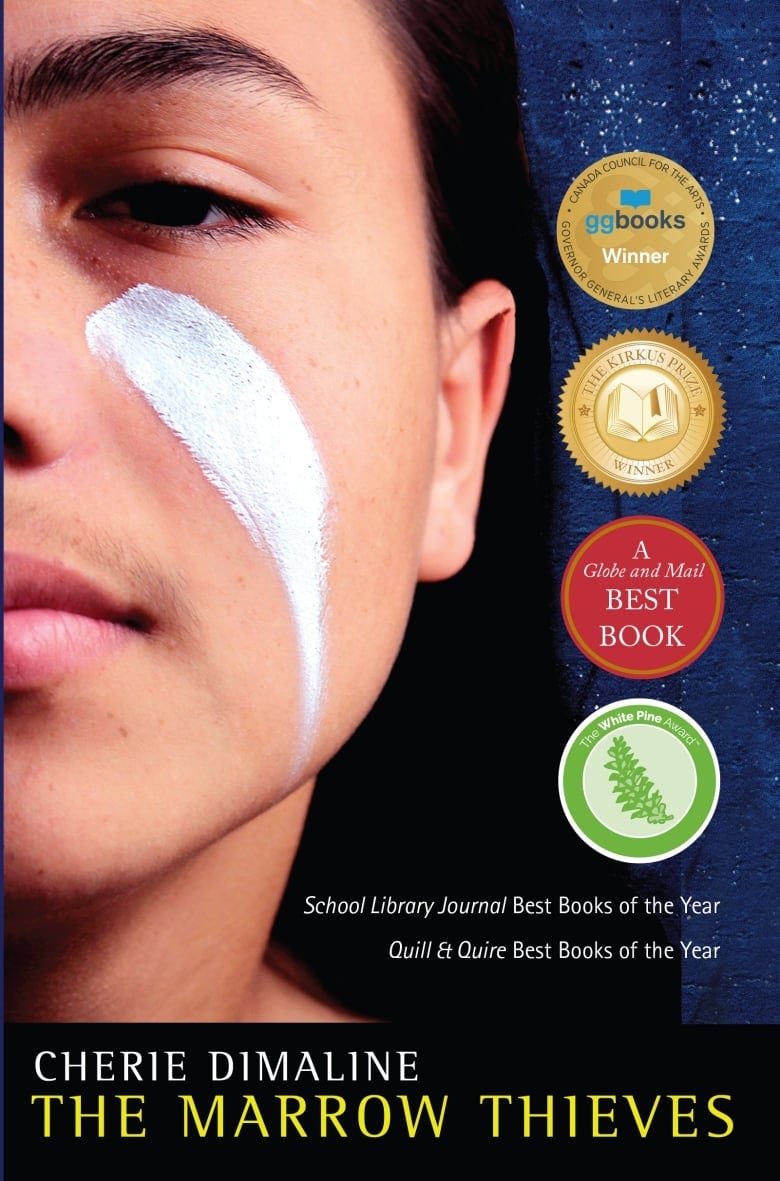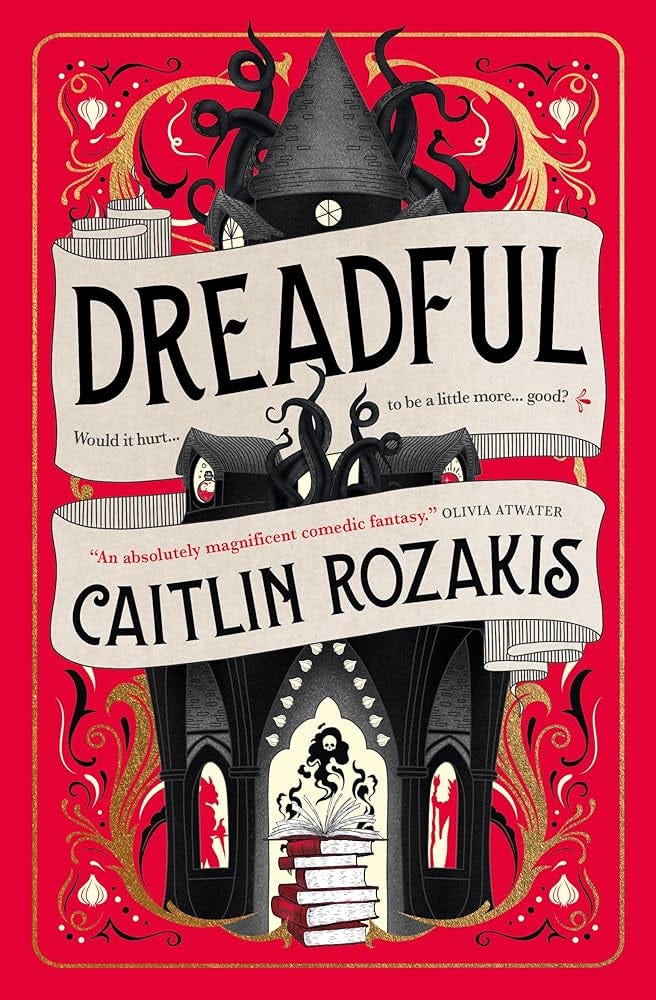The Gate is Unlocked
About a week ago, one of my sophomore English students stayed after class to chit-chat with an expression of worry plastered across their face. This is a great kid—one of those students who works hard, asks great questions, and always does it with a smile on their face—but I’ve taught long enough to know when a kid isn’t right. This kid wasn’t right.
After talking for a few minutes, I learned they had decided not to try out for something because they truly believed they weren’t good enough to make it. Friends and adults in the school kept insisting that this kiddo could do it, but no amount of encouragement was changing anything. This student was convinced that trying out would result in failure, and that by not trying, they could avoid the disappointment of failure.
As an author, you’ve probably felt the same way at some point during the writing and/or querying process, so I’m going to tell you what I told this student: the barrier between Those Who Can and Those Who Can’t is a myth. It doesn’t exist.
In other words, there seems to be this belief in a magical and impenetrable barrier standing between People Who Have Gotten Books Published and People Who Have Not Gotten Books Published. They view this barrier like a locked gate, and once an author has been deemed worthy, the gate swings open and we are allowed to live among the chosen.
But there is no gate.
This isn’t to say that there’s no gatekeeping for women or POC authors trying to break into the book industry. Bias does exist in the publishing world, and there’s no question that for some people, it can be harder to break through than it is for others. I make this point because I don’t want to come off as some cishet white dude who pretends that everything is easy for everybody and ignores clear and obvious roadblocks for certain demographics.
I understand all of that, but the point I’m trying to make is that there is no established criteria we must meet to succeed, so by counting ourselves out before we even begin, we’re guaranteeing failure. I’ve said this a million times, but it bears repeating: the only way to be 100% sure you’ll never get published is to give up.
Allow me to illustrate my point: Christopher Paolini, the author of the Eragon series, began writing the first one when he was fifteen years old. His family self-published the book when he was seventeen, and it caught the eye of someone at Knopf shortly afterward. He was only twenty when the book really blew up and hit bestseller lists. He faced no real toil, no disappointment. Just immediate success.
Meanwhile, an online survey by Medium’s Ava Jae showed that almost 84% of the published authors in the survey wrote at least one novel before writing their debut. The average number of books written before debuting was 3.24, and 9% of respondents wrote seven or more books before writing their debuts.
I also can’t help but think about Fleetwood Mac’s breakthrough album, Rumours, which was their eleventh studio album. It’s not a publishing analogy, but you get the picture. If Fleetwood Mac calls it quits after five or six albums, we never get Stevie Nicks and Lindsey Buckingham. We never get “Go Your Own Way” or “Dreams.”
But more than pushing through failure is sticking to the belief that we are worthy. If we are imagining some invisible barrier between us and success, then the barrier will exist. It’s important to remember that all sorts of people are out there getting book deals—people less talented than you, people with less passion for writing, people with worse work ethic. If there truly was a barrier, those goobers wouldn’t have broken through. Furthermore, if they can make it, so can you.
I tweeted this a couple of weeks ago, but getting published is like 30% talent, 30% hard work and persistence, and 40% luck. There’s a lot that we can’t control in this process, but the one thing we can control is how we think about ourselves. If we’re counting ourselves out before we’ve even tried, like my poor student might have done without enough encouragement, then it ain’t gonna happen for us.
The barrier is a lie. The gate is unlocked. Go do great things.
RevPit Returns!
For those who are new around here, RevPit is an annual contest where several like-minded and benevolent developmental editors each give away a full dev edit to a deserving applicant. The main event doesn’t happen until the spring, but our first event of the new contest year is this month: October #10Queries.
The concept is simple: each participating editor (of which I am one) is randomly assigned ten authors, who each submit their query letters and first five pages. Editors then take turns providing anonymous, public feedback on the queries and pages to help not only the winners but the entire RevPit community learn and grow. The results are posted on the RevPit Subreddit on Friday, October 25th.
It’s a completely free event, so if you’d like to put in for some free feedback, you can enter at the bottom of the RevPit #10Queries Event Page. The contest opens on October 11th, and winners will be notified on October 12th!
What I’m Reading
Last month was a slow reading month for me on account of I contracted the dreaded COVID, which made it impossible to read or think or move for the better part of a week. It was my first time getting it, and a part of me thought I might be some sort of superhuman, forever immune to the ails of mere mortals. Turns out I’m just the unbreakable plate from Uncle Buck.
In any event, I did manage to read some good stuff this month despite the illness and the busy schedule. Here’s the best of what I ingested:
The Marrow Thieves, by Cherie Dimaline
It had been a while since I’d read a really, really good YA novel, so I started doing some googling in search of something page-turny but with a reasonable amount of literary heft. This dystopian book, in which Indigenous Americans are the only humans still able to dream, follows a young man and his found family as they keep away from the “recruiters” on the hunt to capture them for their marrow, which they believe is the secret to dreams.
I know it sounds wild, but there’s some heavy metaphorical stuff going on in subtle, interesting ways. The writing is also gorgeous. Structurally, it’s not what I’d call a traditional layout for a novel, but it’s suspenseful and heartbreaking and fascinating despite that. Really cool book.
Dreadful, by Caitlin Rozakis
I’m only about halfway finished with this one, but in my neverending search for books that crack me up, I tripped and fell into this story about a dark wizard who has lost all his memories and has forgotten how to be properly evil. He falls in love with the princess he’s been keeping captive for reasons he can’t remember, but there are wizards darker and more evil than him counting on him to be the “old” version of himself. The version in the book, though, seems to want to turn over a new leaf.
Is it funny? No, not really. But one of my favorite literary tropes is getting the point of view of the “bad” guys (or gals). I always love the villain’s perspective.
Dungeon Crawler Carl, by Matt Dinniman
In another attempt at finding something humorous to read, I dipped my toes into this bat-poo whirlwind of a LitRPG. I don’t even know how to explain it. The world is flattened except for a few humans who get sent into an 18-level reality television competition enjoyed by aliens across the universe, and our protagonist (Carl) must work with his anthropomorphized British cat Princess Donut to survive the gauntlet of goofy villains and dangerous tasks.
Is it funny? No, not really, but the difference between it and Dreadful is that Dungeon Crawler Carl is trying really hard to be funny. A little too hard, maybe. I don’t know. It just wasn’t my cup of tea. I struggle with LitRPGs anyway because of the scattershot plot structure. This was one of the better ones I’ve read in that regard, but I still didn’t care for it.
My kingdom for a truly hilarious book that doesn’t sacrifice story quality for laughs!!!
Thanks for reading! If you’re new here, don’t forget to subscribe, and please share with any other writer buddies you think may benefit.
Hugs and high fives,
-JB










After seeing him speak (with my kids) at B&N I have a lot of thoughts about how Christopher Paolini became a published author. And no, it’s not the normal or necessarily ethical path. But yes, imposter syndrome is always knocking for me, for my kids, and for my writing friends. Don’t be your own roadblock❤️